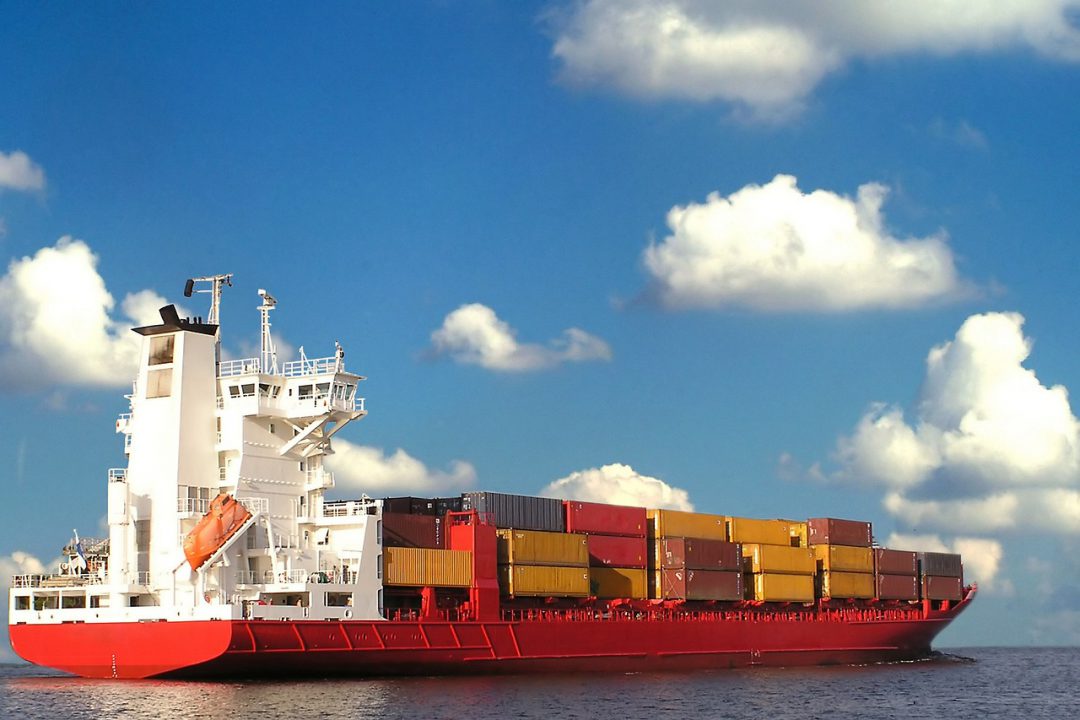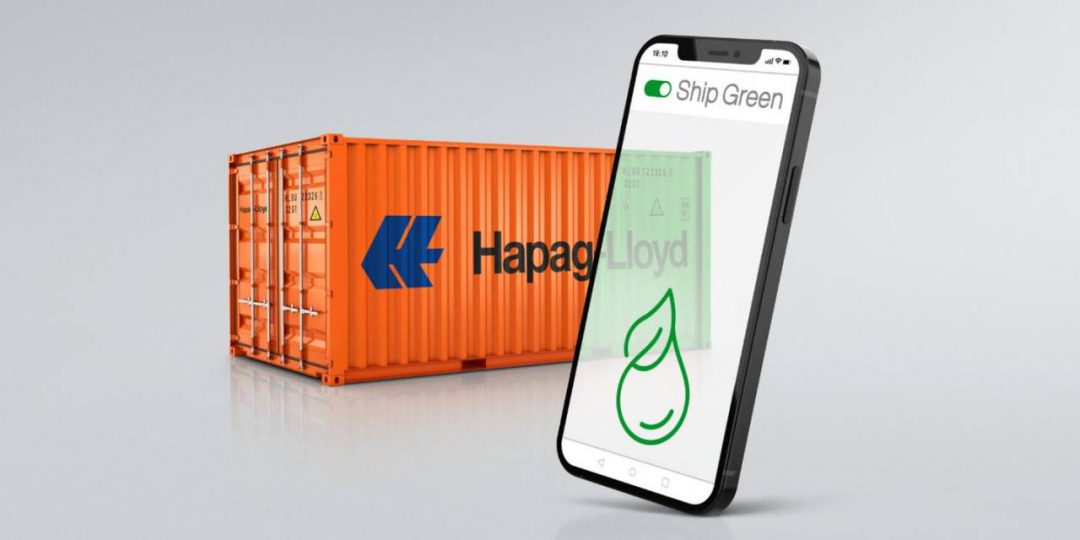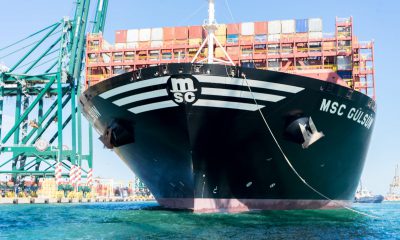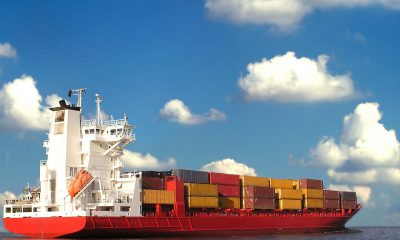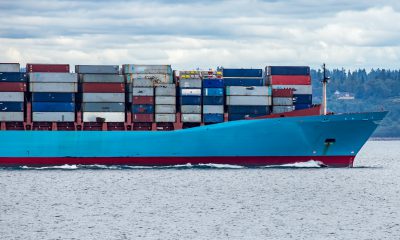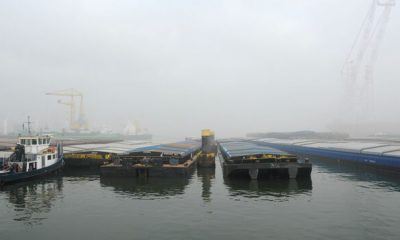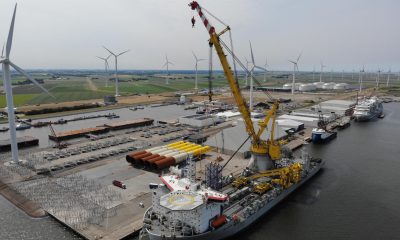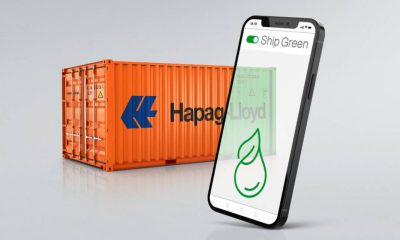lomarlabs, Seabound and Lomar Shipping collaborate on a new project to accelerate the decarbonisation of the shipping industry and the evolution of novel maritime technologies.
Lomar’s new subsidiary lomarlabs is excited to announce its collaboration with climate tech start-up Seabound, in a bid to reduce emissions and catalyse new, cost-effective methods to capture CO2 onboard vessels.
lomarlabs works with ambitious entrepreneurs who bring deep tech solutions to the maritime industry and helps them de-risk their technologies and optimise their business models. This venture is spearheaded by former Lomar Technical Director Stylianos Papageorgiou, who has been appointed its Managing Director.
Seabound has developed a patent-pending compact carbon capture device that can be retrofitted into a ship’s engine exhaust at the funnel. The CO2 chemically reacts with pebbles of quicklime, which then convert into limestone, keeping the CO2 locked in. The limestone pebbles are temporarily stored onboard before the ship returns to port, without any need for energy-intensive CO2 separation, compression, or liquefaction. The pebbles are safe, inert and non-toxic; abundantly available worldwide and reasonably priced. Once back in port, the limestone pebbles are offloaded and either sold in pure form or turned back into quicklime and CO2, for the quicklime to be reused onboard another vessel and the CO2 sold for utilization or sequestration.
Preparations to install this equipment onboard the first ship will take place in May and June this year to run the first-ever pilot project throughout this summer.
This project is part of the Clean Maritime Demonstration Competition Round 3 (CMDC3), which was announced in September 2022, funded by the UK Department for Transport and delivered in partnership with Innovate UK. As part of the CMDC3, the Department allocated £60m to 19 flagship projects supported by 92 UK organisations to deliver real-world demonstration R&D projects in clean maritime solutions. Projects will take place in multiple locations around the UK from as far north as the Shetland Isles and as far south as Cornwall.
Stylianos underlines: “lomarlabs is advising on engineering and design for this transformative solution, adapting it to the realities of everyday commercial shipping operations. We help formulate pilot tests on Lomar vessels, and fine-tune the business model using our industry insight to help make a viable business. We share our experience and network to develop solutions that have the potential of delivering systematic change for our maritime industry.”
Seabound Co-Founder & CEO, Alisha Fredriksson, states: “We’re excited to be collaborating with lomarlabs for this first-of-a-kind ship-based pilot of Seabound’s compact carbon capture technology. It has already been instrumental working with Stylianos and his team because they’re keen to jump into the technical details with us and to brainstorm creative approaches to iteratively and cost-effectively de-risk this novel technology. Together we aim to demonstrate that the shipping industry doesn’t have to wait to decarbonize in 5-10+ years, but that there are already viable solutions coming to the market now.”
CEO of Lomar Shipping Nicholas Georgiou added: “We are keen on exploring technologies that will unlock maritime innovation and lead to the decarbonisation of our industry. With lomarlabs and Seabound’s conjoined efforts, we are excited to accelerate our involvement in the mission towards safer, cleaner oceans and contribute to bringing zero-emission shipping from theory to practice.”
lomarlabs is a venture lab that provides early-stage tech companies with the physical infrastructure, support, industry insight, expertise and funding they need to responsibly test, prove and commercialise their solutions; catalysing their entry into a market that’s rapidly evolving. It draws on nearly five decades of operational innovation at Lomar Shipping to catalyse deployment of deep technological solutions, with a view to solving the maritime industry’s biggest challenges.
Seabound is a London-based climate tech startup that builds carbon capture equipment for ships. The equipment is installed adjacent to a ship’s funnel to trap up to 95% of CO2 from the exhaust, using patent-pending technology. Founded in late 2021, Seabound has to date built two working land-based prototypes, secured seven letters of intent from leading shipowners, and raised $5.7M in funding from world-class investors including Lowercarbon Capital, Y Combinator, Eastern Pacific Shipping, and the UK Department for Transport.

